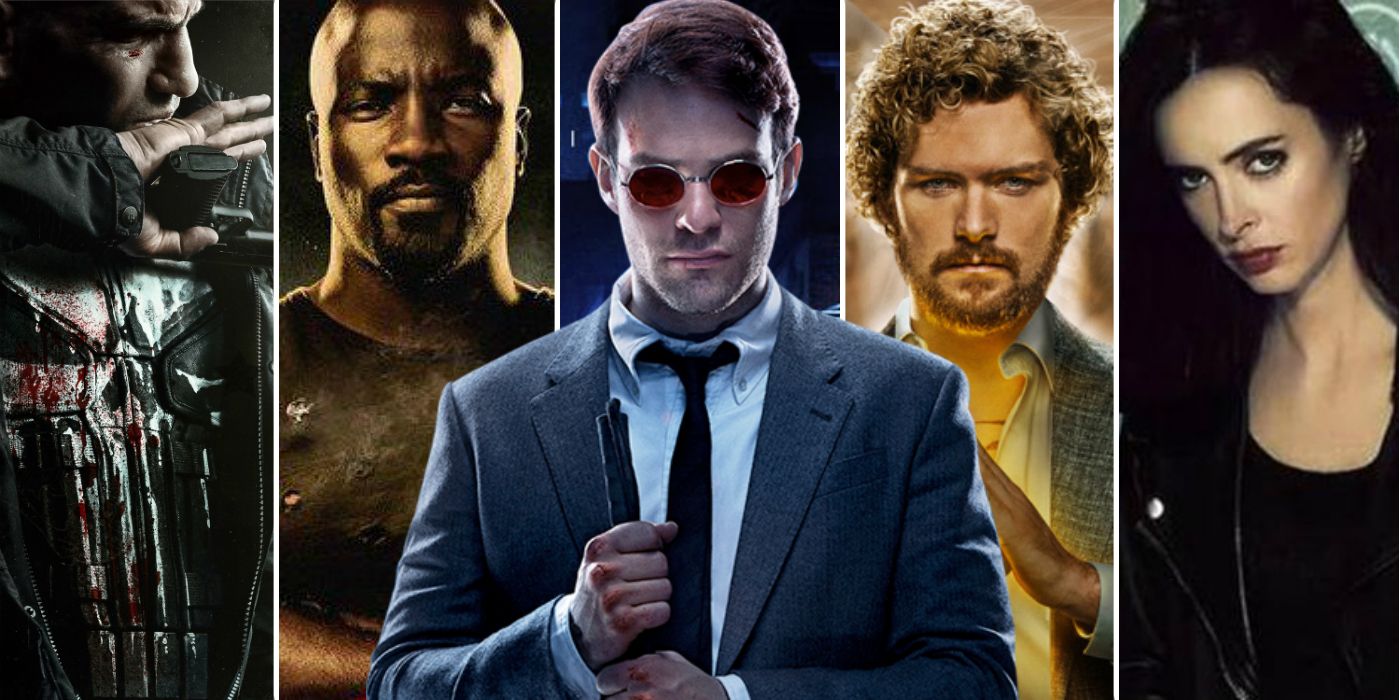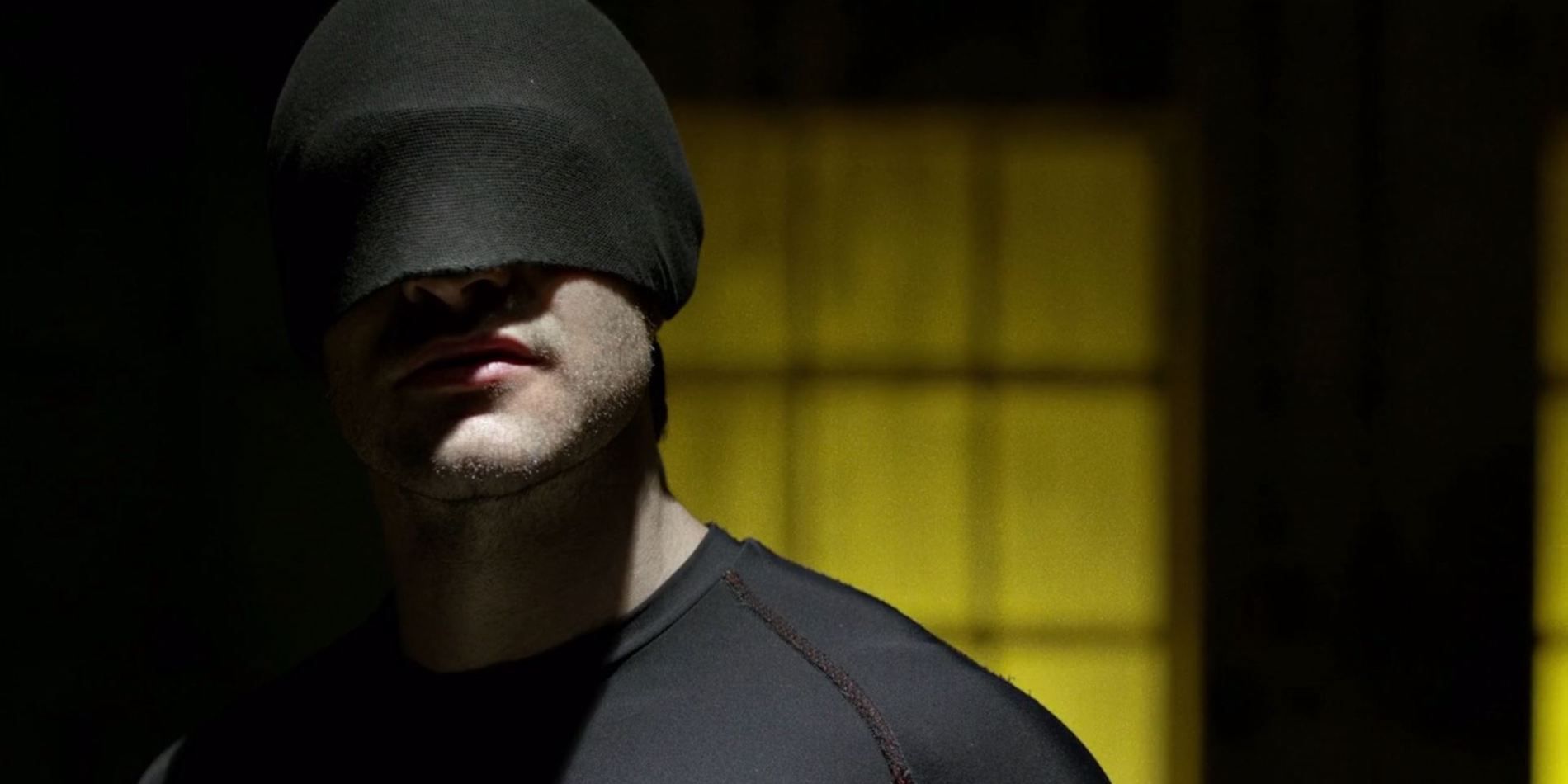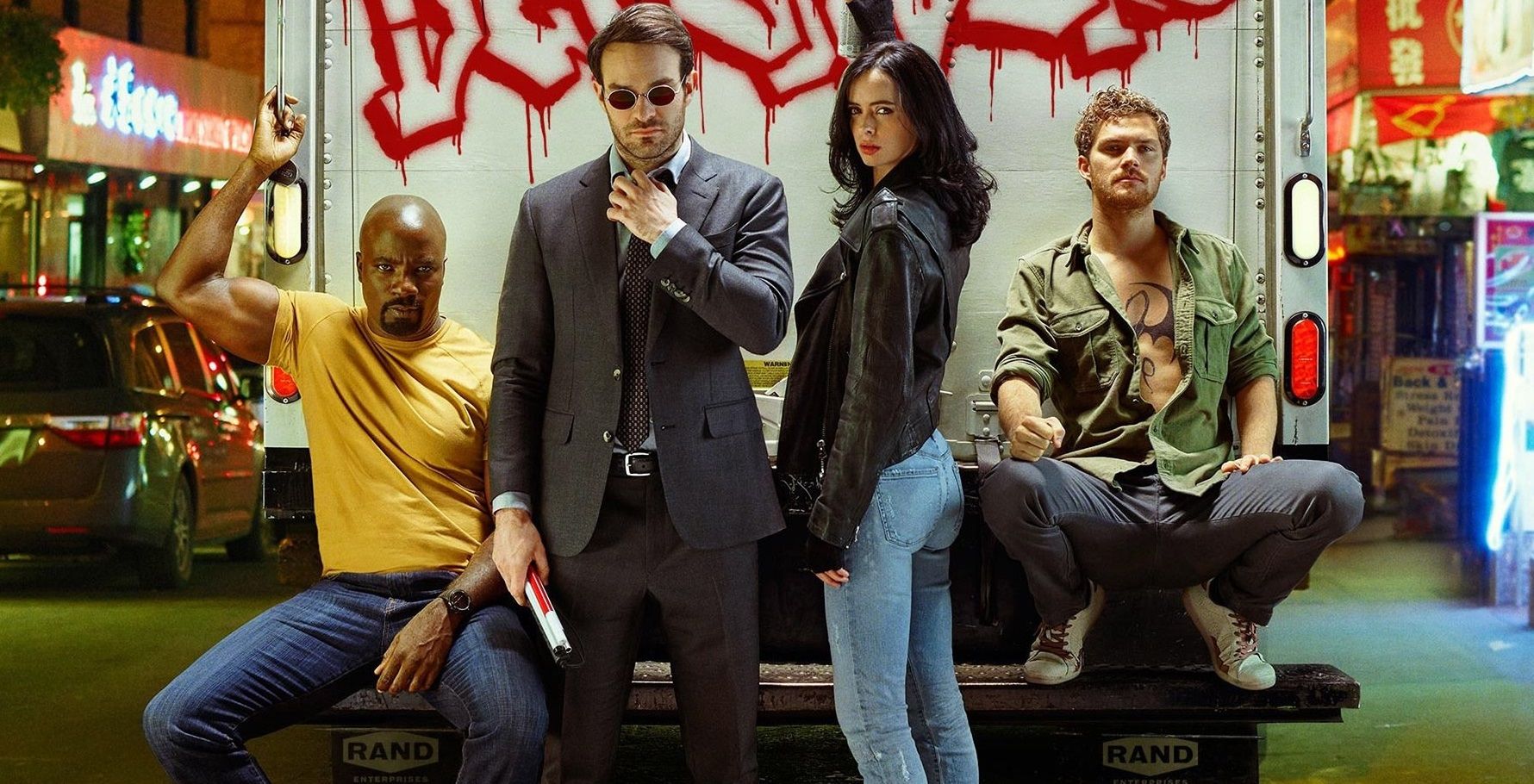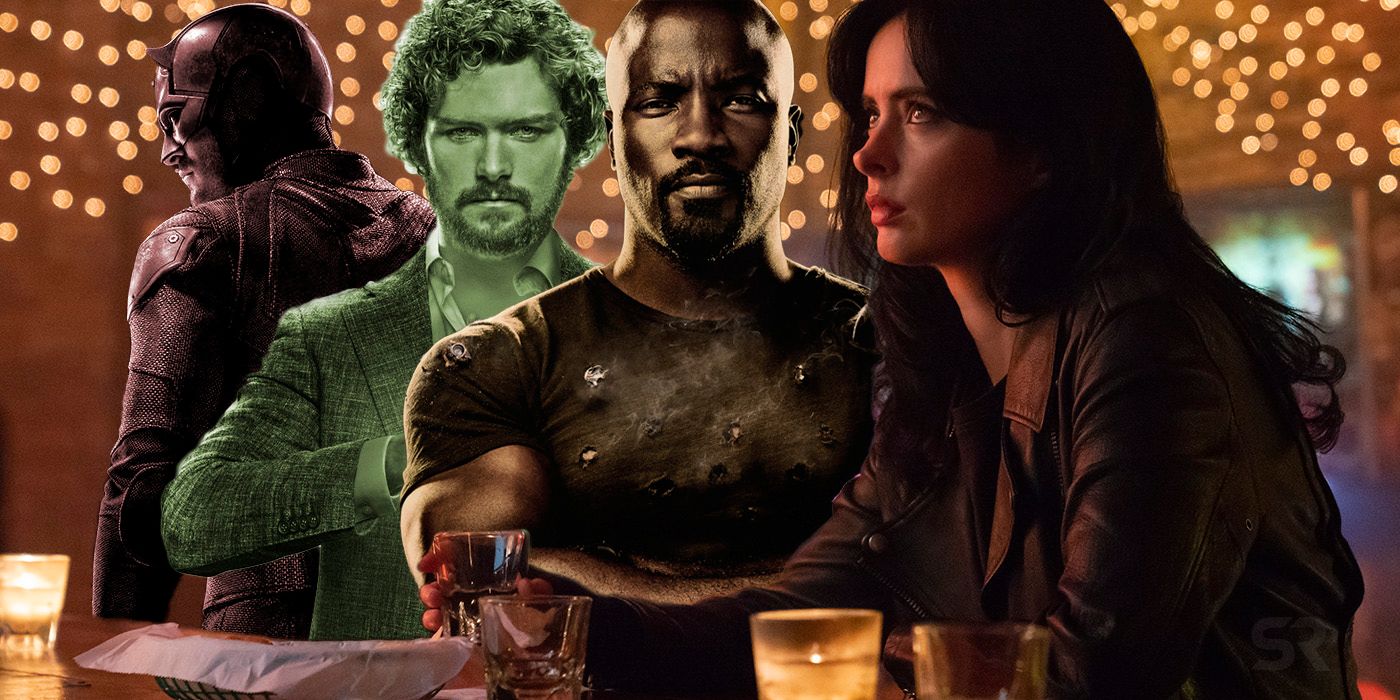Netflix's Marvel experiment has come to a close after Jessica Jones season 3, with the decline of this corner of the MCU most likely to be remembered as a failure for both the streaming service and Marvel. That's not entirely inaccurate, but it's also not completely fair either.
The aforementioned slide, in both interest and quality, is what the Netflix's corner of the MCU will most likely be remembered for. The slew of cancellations that took place in later 2018, when Iron Fist, Luke Cage, and Daredevil were all canned in quick succession, meant that it was already a dead universe walking before season 2 of The Punisher and season 3 of Jessica Jones even had release dates. Now, it's officially over.
Ultimately, both Netflix and Marvel TV made a number of mistakes that led to the perceived failure of their ambitious project, especially where pacing and the rigid number of episodes in each season were concerned. Some of the shows have already been forgotten too. But Netflix's MCU should also be applauded for the things it got right, including some of the best stories Marvel have put on a screen of any size.
Netflix's Initial Marvel Series Almost All Worked
The Netflix Marvel Universe has shuffled off this mortal coil so quietly that to say it went out with a whimper would be generous, and yet it started with an almighty, thunderous bang. Back in early-2015, Daredevil was still mostly well-known to a broad audience for the failed Ben Affleck movie a dozen years earlier, while the MCU was defined by its pop-colored, family-friendly, quip-happy popcorn flicks. Somehow, the two combined to deliver one of the most exhilarating, action-packed, and very much adult superhero TV shows ever seen.
This wasn't a one-off, either. A few months later, along came Jessica Jones. While the series couldn't compare in the action stakes, it more than made up for it with a complex protagonist, dark humor, and a fascinating exploration of themes around assault, abuse, and trauma. Coming when the big screen MCU was having one of its weakest ever years - Avengers: Age of Ultron and Ant-Man mean 2015 is definitely not a great vintage - the Netflix series represented the best live-action Marvel content available to fans.
It didn't quite hit those highs the following year, but it often came close. Daredevil season 2 and Luke Cage season 1 weren't as wholly great as what came before, but certain elements such as the Daredevil vs. Frank mini-arc, or the Cottonmouth-centric half of Cage, were every bit as good, and the rest was solid enough to keep the faith. It's been great since then too, as with The Punisher's first season or, best of all, Daredevil's third, which stands atop the entire pile despite coming out so close to the end. Marvel Netflix may have failed by the end, but in the beginning, it was nearly so sweet.
Netflix Proved The MCU Can Be More Than Just Movies
Daredevil season 1 wasn't just great, but a mission statement. It was, for Netflix, an attempt to get themselves a slice of the oh-so-lucrative MCU pie. But for Marvel, it was perhaps even bigger: it was proof that they could do television. And not only that, but do it really, really well.
Agents of SHIELD has been critically acclaimed for the past couple of seasons, but in the days before Daredevil it wasn't such a pretty picture. Designed to be the MCU's big leap into TV, with the promise that "it's all connected", AoS was often fine, but only occasionally must-watch. Marvel was leading the way in comic book movies, but on television, it was DC who had the advantage, thanks to Arrow season 2 and then The Flash season 1 blazing new trails in what superhero TV shows could be.
Daredevil and Jessica Jones, then, functioned as Marvel TV's big response. It wasn't just something to complement the big screen movies, but to stand on its own two feet. It filled a gap that many Marvel fans hadn't even realized was there. It was darker, intense, dealt with real-world, grounded, adult issues, and contained fight choreography better than anything else around, with stronger villains than what the MCU - outside of Loki, at least - had managed to serve up. It was exciting, long-form storytelling. The MCU is going to get a lot bigger in this regard thanks to a number of new shows planned for both Hulu and Disney+, but it was the Netflix MCU that first proved just how well they could do it.
The Defenders Failed To Be Netflix's Avengers
Netflix and Marvel Television essentially followed the same blueprint as the movies when building their corner of the MCU, with four shows (and five seasons, as they made room for Daredevil season 2) leading to the big team-up event. Even if the quality had been mixed so far, with Iron Fist the dud of the group like Phase 1's Iron Man 2, it'd be fine so long as they nailed The Defenders, much like Marvel Studios did with The Avengers.
Sadly, The Avengers this was not. Despite having only eight episodes, which should have allowed for an explosive mini-series, The Defenders was bogged down by the same pacing issues that would come to define Marvel Netflix. It took a few hours to even just get the team together, but even once that happened the sparks didn't begin to fly.
There were a number of problems with The Defenders, from poor direction to lackluster action sequences, and again being mired by the villainous organization the Hand, but the biggest is that it never justified its own existence. Daredevil and Jessica Jones had some fun moments in the team-up, but for the most part these heroes weren't as great together as they were apart. In The Avengers, it was a joy to watch the superheroes meet, bicker, and ultimately fight alongside one another. Here, it felt like a chore.
There Was No Reason For Marvel Netflix To Continue
When Netflix and Marvel first announced their project, there was a clear (if ambitious) plan in place. There would be four shows, each with 13 episodes, followed by the eight-episode The Defenders. A multi-year, 60 episodes shared universe, as an attempt to mimic some of the MCU's movie success, but it was never really designed to go beyond that.
As is generally the case, though, if something is successful, then it'll get another outing. This happened swiftly in the case of Marvel Netflix, with Daredevil season 2 arriving just a year after the first, and that in turn leading to a spin-off for The Punisher, with Jon Bernthal's portrayal proving extremely popular. Even with some of those successes, however, showed that this wasn't something built for longevity.
The second season of Jessica Jones was a major downturn on the first, without managing to bring much new to the table either. Luke Cage, too, failed to hit the heights of its first seven episodes. Iron Fist did improve in season 2, but it was starting from a low bar and, by that point, few people really cared. The Punisher's second season wasn't as strong. Only Daredevil season 3 made a significant improvement, but even that mattered little, because after The Defenders the interest in the Netflix MCU was rapidly dwindling. Like with the team-up itself, these second seasons never managed to give a convincing reason for why they existed. There wasn't a coherent plan or purpose, they were just there. And now they're not. It's worth remembering how good they once were, but it also highlights how hard and fast they fell.





